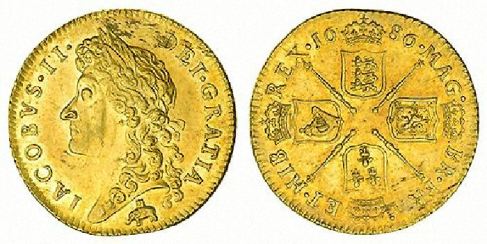Martin Noell & Thomas Povey: More than Mere Merchants
In the early modern period, wealth was a means to political power, and the accruement of greater levels of wealth was a goal which all men aspiring to political greatness sought. Powerful merchants like Martin Noell and Thomas Povey serve as models of the countless numbers of men who took advantage of, or attempted to take advantage of, the growing world of trade in the West Indies in the mid-17th century. Per the suggestion of Dr. Donoghue, I spent this past week delving into the lives of Noell and Povey in an attempt to create a foundational understanding of the world of trade and English interests Henry Morgan sought to protect early in his career. I found two very compelling sources pertaining to these distinguished men, both interpreting Martin Noell and Thomas Povey as men who successfully (success measured in monetary and political terms) transitioned from the Interregnum period to the Restoration of Charles II. The first of these sources is a compilation, Papers Relating to the English Colonies in America and the West Indies, 1627-1699, in the British Library (Egerton Mss 2395). Edited by Professor Kenneth Morgan at Brunel University, this source is taken from Thomas Povey’s own collection of sources relating to his involvement in the West Indies and the creation of the Royal African Company. British Committees, Commissions, and Councils of Trade and Plantations 1622-1675 by Charles M. Andrews serves as a history of all the aforementioned organizations created and operated in the 17th century; Martin Noell and Thomas Povey were members of many of these groups, including the Company of Royal Adventurers created by Charles II, which later became the Royal African Company.
Guinea of the Royal African Company, prominently displaying the visage of of James II. The coin also depicts the logo of the Royal African Company, the elephant and castle.
Martin Noell was an incredibly important figure in both English trade and politics in the mid-17th century; his merchant vessels were used during wars with the Dutch and Spanish under orders of English Letters of Marque. In 1655, Noell acquired 20,000 acres of land in Jamaica, later serving on both the Trade Committee and Committee for Jamaica. After enjoying the favor of Cromwell during the Interregnum period, Noell was able to successfully transition to the Restoration and gain the favor of King Charles II; he was knighted for his service to the crown in 1662. The success of Thomas Povey’s career was largely supported by the influence of Martin Noell, an already powerful figure in the English government, as shown by Povey’s appointment to the Committee for Jamaica. Povey and Noell’s individual reputations as wealthy and powerful merchants transferred to give them a great deal of prestige in London society; their influence on the creation of mercantile policy in the West Indies and American colonies is essential to understanding the connection between London and places like Jamaica, which seemed so far outside England’s direct sphere of influence. Their job, therefore, was to ensure that they would benefit from the early expansion of British dominion into areas like Jamaica and Barbados.
Martin Noell and Thomas Povey did just that– in the mid-1650’s, the two powerful merchants proposed the creation of a West India trade company to be formally incorporated by an act of Parliament. This direct act would give their company, “diverse privileges and assistances, and an immunity and sole trade in any place they shall conquer or beget a trade with the Spaniard’s dominion” (Egerton Ms. 2395, f. 202). The ultimate goal was to monopolize trade in the West Indies and extend its benefits to their close allies, believing mercantile power would lead to political influence in these newly conquered areas. Yet, their early attempts to create such a company were thwarted by the death of Oliver Cromwell, and the ensuing chaos that led to the 1660 Restoration of King Charles II.
The grand procession of King Charles II to his coronation on April 23rd, 1661; such grandeur reaffirmed to the English people that their long-lost monarch was truly returned to the country, and especially returned to power.
Yet, the work of men like Povey and Noell was not completely lost upon the newly restored monarch; Charles II realized how lucrative and beneficial organized trade in the West Indies could be for the monarchy. He therefore saw necessity in addressing issues of political security and trade protection brought forth by planters and merchants abroad. On July 4th, 1660, Charles II appointed members of the Privy Council to a Board for Trade and Plantations. The job of such a group was to, “review, heare, examine and deliberate upon any petitions, propositions, memorials, or other addresses, which shall be presented or brought in by any person or persons concerning the plantations, as well in the Continent as Islands of America” (Andrews 62). Martin Noell and Thomas Povey were granted their wish- to be at the forefront of the expansion to the new frontier of the West Indies.


